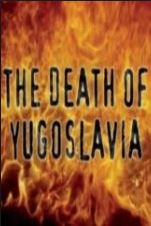Earth & Space | Crime | Environment | Health | History | Nature | Military | War | Politics | Science | Society | Technology | Truth Conspiracy
Bosnian War: the Death of Yugoslavia

was a genocide..
The Bosnian War was an international armed conflict that took place in Bosnia and Herzegovina between 6 April 1992 and 14 December 1995. The war involved several factions.
The main belligerents were the forces of the Republic of Bosnia and Herzegovina and those of the self-proclaimed Bosnian Serb and Bosnian Croat entities within Bosnia and Herzegovina, Republika Srpska and Herzeg-Bosnia, who were led and supplied by Serbia and Croatia respectively.
Srebrenica: 20 Years On
Wiki on Genocide
The killings were perpetrated by units of the Bosnian Serb Army of Republika Srpska (VRS) under the command of General Ratko Mladić. The Scorpions, a paramilitary unit from Serbia, who had been part of the Serbian Interior Ministry until 1991, also participated in the massacre. In April 1993, the United Nations declared the besieged enclave of Srebrenica—in the Drina Valley of northeastern Bosnia—a "safe area" under UN protection. However, in July 1995, UNPROFOR's 370 Dutchbat soldiers in Srebrenica failed to prevent the town's capture by the VRS — and the subsequent massacre.
In 2004, in a unanimous ruling on the case of Prosecutor v. Krstić, the Appeals Chamber of the International Criminal Tribunal for the former Yugoslavia (ICTY), located in the Hague, ruled that the massacre of the enclave's male inhabitants constituted genocide, a crime under international law. The ruling was also upheld by the International Court of Justice (ICJ) in 2007.[27] The forcible transfer of between 25,000 and 30,000 Bosniak women, children and elderly which accompanied the massacre was found to be confirming evidence of the genocidal intent of members of the VRS Main Staff who orchestrated the massacre.
In 2005, Kofi Annan, then Secretary-General of the United Nations described the mass murder as the worst crime on European soil since the Second World War,[2][3] and in a message to the tenth anniversary commemoration of the massacre, he wrote that, while blame lay "first and foremost with those who planned and carried out the massacre and those who assisted and harboured them", the UN had "made serious errors of judgement, rooted in a philosophy of impartiality", describing Srebrenica as a tragedy that would haunt the history of the UN forever.

